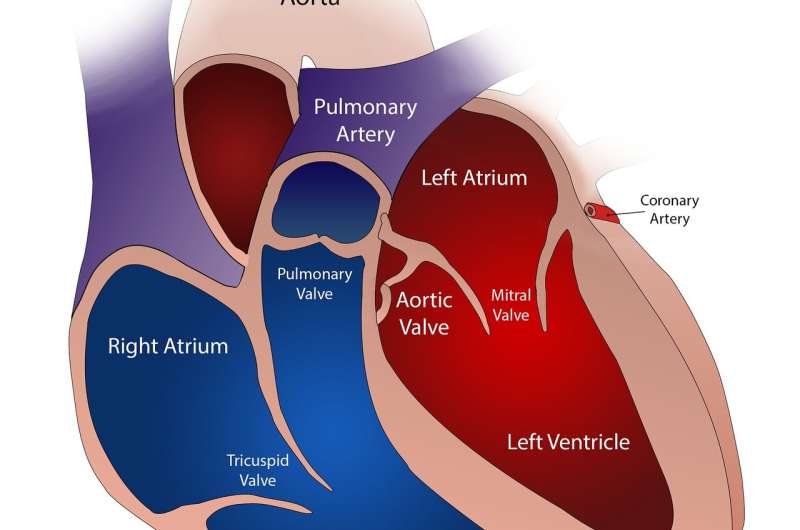Credit: CC0 Public Domain
A new study has shown that although 86% of women seen at an outpatient gynecology clinic had a cardiovascular risk factor and 40.1% had at least one cardiovascular symptom, the awareness of cardiovascular risk factors and symptoms was low. The study, which showed the feasibility of using a simple screening tool in the outpatient gynecology setting for cardiovascular risk assessment, is published in Journal of Women's Health, a peer-reviewed publication from Mary Ann Liebert, Inc., publishers. Click here to read the full-text article on the Journal of Women's Health website through August 20, 2020.
Roxana Mehran, MD, Mount Sinai Medical Center (New York, NY), and an international team of researchers found the need for improved screening for cardiovascular risk factors and symptoms, both among women who had a history of adverse pregnancy outcomes (APO) and those who did not. The level of awareness of risk factors, including high blood pressure, high cholesterol, and obesity, was somewhat higher among those who had had adverse pregnancy outcomes. The no-APO group was more likely to have risk factors and cardiovascular symptoms such as angina and dyspnea. For many women, a visit to the gynecologist serves as their only form of primary health care. Mehran concluded that improved screening in ob/gyn clinics may enhance the detection of cardiovascular issues in women. They present their findings in the article entitled "Feasibility and Utility of a Cardiovascular Risk Screening Tool in Women Undergoing Routing Gynecology Evaluation."
Gina Lundberg, MD, applauds the simple questionnaire used by Yu et al. to assess cardiovascular disease risk during routine office appointments in the editorial entitled "Beyond the Bikini." She states: "This compelling paper emphasizes how far we are from achieving optimal cognizance of CVD risk factors in addition to identifying symptoms of angina among all women, particularly perimenopausal women and those with a history of adverse pregnancy outcomes."
More information: Jennifer Yu et al, Feasibility and Utility of a Cardiovascular Risk Screening Tool in Women Undergoing Routine Gynecology Evaluation, Journal of Women's Health (2020). DOI: 10.1089/jwh.2019.8074
Journal information: Journal of Women's Health
Provided by Mary Ann Liebert, Inc
























